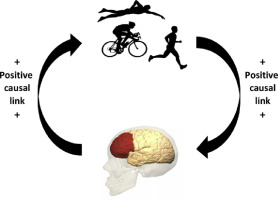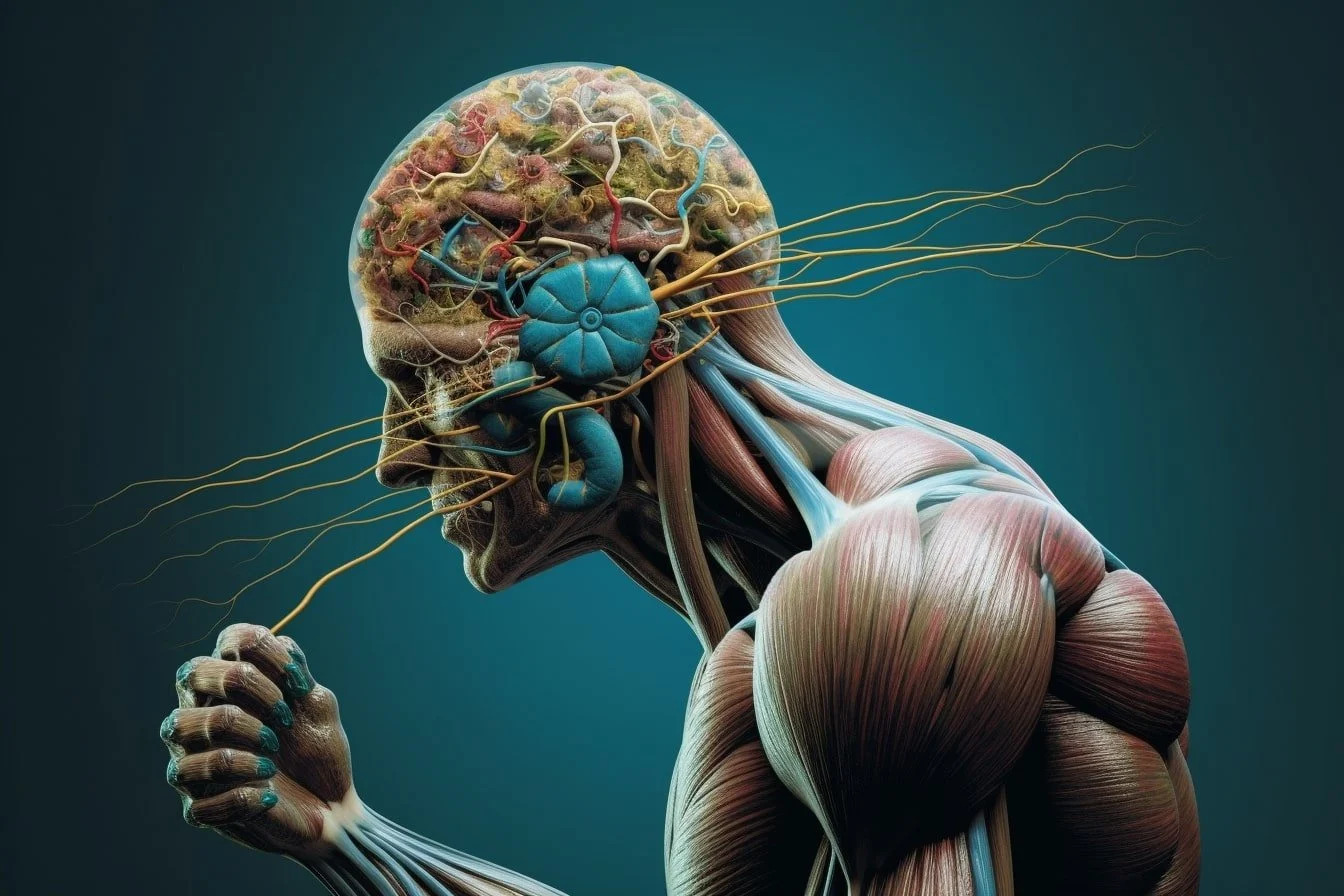Unlocking Cognitive Potential: The Fascinating Interplay Between Exercise and Brain Enlargement
Exercise and Brain : Unraveling the Neurological Benefits of Physical Activity:
Introduction:
For decades, the consensus has been clear – exercise is a cornerstone of physical health, contributing to cardiovascular fitness, mood enhancement, and overall well-being. However, recent research has uncovered a remarkable and unexpected dimension of staying active: the potential for exercise to augment the size of our brains.
This revelation goes beyond merely cramming more grey matter into our skulls; instead, it points to targeted growth in specific brain regions crucial for memory, decision-making, and overall cognitive function. Strapping on your sneakers and engaging in physical activity may well be one of the most effective strategies for enhancing both mental health and long-term brainpower.

The Neurological Mechanisms Behind Exercise-Induced Brain Growth:
While the precise mechanisms linking exercise to changes in brain size are still being deciphered, several key factors have emerged:
- Increased Blood Flow: Exercise stimulates the heart, facilitating enhanced blood circulation and oxygen delivery to the brain. This increased blood flow provides essential resources for brain cells to flourish and grow.
- Boost in Neurotransmitters: Physical activity triggers the release of Brain-Derived Neurotrophic Factor (BDNF), a protein vital for the growth and survival of brain cells. Elevated BDNF levels have been associated with larger brain sizes and improved cognitive function.
- Reduced Inflammation: Chronic inflammation is implicated in various brain diseases, including Alzheimer’s and dementia. Regular exercise acts as an anti-inflammatory agent, reducing inflammation in the body, including the brain, thus offering protection against cognitive decline.
- Stress Reduction: Exercise serves as a natural stress reliever, mitigating the detrimental impact of chronic stress on brain health. By reducing stress, exercise creates a conducive environment for both brain growth and optimal function.
Scientific Validation:
Numerous studies have now firmly established the link between exercise and brain size. A study in the Journal of Alzheimer’s Disease, analyzing MRI scans of over 10,000 individuals, demonstrated that those who engaged in more physical activity exhibited larger volumes of grey matter in brain regions associated with memory, decision-making, and executive function. Even modest increases in physical activity, such as taking 4,000 steps a day, correlated with expanded brain volumes.

Another study, published in Nature, monitored older adults participating in a 12-month aerobic exercise program. The results indicated that regular exercise led to an enlargement of the hippocampus, a critical brain region for memory formation and spatial navigation.
Practical Implications for Individuals:
The takeaway is clear – exercise is not just a boon for the body; it is a potent ally for brain health. Even moderate levels of physical activity can significantly impact brain size and cognitive function. Current research suggests that aiming for at least 30 minutes of moderate-intensity activity most days of the week is beneficial. However, even small amounts of activity can yield positive effects. If you’re new to exercise, start gradually and increase intensity over time.
Here are some practical suggestions for incorporating more exercise into your routine:
- Engage in brisk walks, runs, or bike rides.
- Join fitness classes like yoga or Pilates.
- Express yourself through dance.
- Opt for stairs instead of elevators.
- Park further away and walk.
- Embrace gardening or yard work.
- Play active games with friends or family.
Remember, the key is finding enjoyable activities that can be sustained over the long term. The more you move, the more you contribute to your brain’s growth and sharpness.
Beyond Brain Size: A Holistic Perspective:
While brain size is a significant factor in cognitive function, it’s crucial to acknowledge that it’s just one piece of the puzzle. Genetics, sleep, and diet also play pivotal roles. Nevertheless, the link between exercise and brain size serves as a compelling reminder that caring for our physical health is indispensable for optimal brain health. and Exercise and Brain
What This Means for You:
The message is clear: exercise is not just good for your body, it’s good for your brain too. Even moderate levels of physical activity can have a significant impact on brain size and cognitive function. So, how much exercise is enough? The current research suggests that aiming for at least 30 minutes of moderate-intensity activity most days of the week is beneficial for brain health. But even small amounts of activity can make a difference. So, if you’re not used to exercising, start slowly and gradually increase the duration and intensity of your workouts as you get fitter.

Findings from a recent study indicate that engaging in moderate levels of physical activity, equivalent to a mere 4,000 steps daily, can yield significant benefits for brain health and potentially stave off dementia. This groundbreaking research, which analyzed brain scans of over 10,000 individuals, points to the increase of both grey and white matter within the brain, integral for processing information and connecting different brain areas.
Conclusion:
So, lace up those shoes, get moving, and offer your brain the boost it deserves. Both your mind and body will undoubtedly express their gratitude. As with any lifestyle change, consult your doctor before commencing a new exercise program, listen to your body, and celebrate the small victories along the way. Remember, even the slightest changes can lead to significant benefits. Take that first step today and embark on the journey to enhance your brain and body through the power of exercise.
Table of Contents
For Business Enquiry Email info.graricreation@gmail.com
Follow us on YouTube https://youtube.com/@graricreation
To know more about the author :https://gravatar.com/thestoryspeaker2
For your suggestion kindly contact us at https://thestoryspeaker.in/contact-us/
Welcome to TheStorySpeaker, your go-to destination for the latest and most insightful news articles. Join our community of knowledge seekers and stay ahead in the fast-paced world of news. Don’t forget to show your support for independent journalism!





